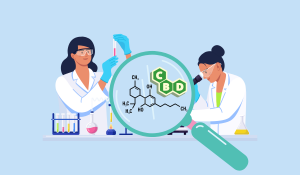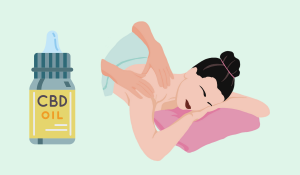When it comes to understanding the differences between CBD oil and hemp oil, the landscape can be quite confusing. Both products are derived from industrial hemp, yet they serve different purposes and contain different compounds. Let’s clarify the distinctions between CBD oil vs. hemp oil and address common misconceptions.
CBD oil is extracted from the flowers, leaves, and stalks of the hemp plant. It contains high levels of cannabidiol (CBD), a non-psychoactive compound known for its potential therapeutic benefits, such as reducing seizures in dogs, relieving pain, and easing anxiety.
Hemp oil, also referred to as hempseed oil, is derived from the seeds of the hemp plant. Unlike CBD oil, hemp oil contains minimal to no CBD. Instead, it’s rich in nutrients like omega-3 and omega-6 fatty acids, making it an excellent addition to skincare products and dietary supplements.
While both oils come from the same plant, they are far from being the same product:

Hemp oil is celebrated for its numerous health benefits, especially for skin health. It contains anti-aging properties, moderates oil production, moisturizes, soothes inflammation, and treats dermatitis. These benefits are largely attributed to its high levels of omega-6 and omega-3 fatty acids, as well as linoleic and oleic acids, which the body cannot produce naturally.

Although rare, hemp oil can cause mild irritation when applied topically. When consumed orally, it might cause digestive issues, often due to the oil carrier rather than the hemp oil itself. Additionally, individuals on blood thinners should exercise caution, as hemp oil can inhibit platelet production, leading to potential interactions with their medication.

CBD oil is renowned for its potential health benefits, which include

While CBD oil is generally well-tolerated, some individuals may experience side effects, including:
There is a lot of confusion in the marketplace regarding CBD oil and hemp oil. Marketers often blur the lines between these products, using terms like “cannabis oil” and highlighting cannabis leaves on packaging to suggest CBD content when there is none. It’s essential to read labels carefully and understand the differences to make informed choices.

Key Features Pros Cons Real User Experience Final Verdict: Is Five CBD Full-Spectrum CBD+THC Oil Worth It? Five CBD Full-Spectrum CBD+THC Oil delivers where it...
Read More
CBD-infused salad dressing: Imagine a fresh, crisp salad enhanced with a light, herbaceous vinaigrette containing your daily dose of CBD. To create this, you’ll need...
Read More
What are CBD beverages, exactly? They’re simply drinks infused with cannabidiol (CBD), a compound found in the hemp plant. Now, before you think “high,” to...
Read More
Importance of Quality Control in CBD Quality control is the backbone of a safe CBD product. Rigorous quality standards help ensure that products are consistent,...
Read More
Understanding the Grip of Anxiety: Recognizing the Signs Have you ever felt anxious before a big event? It’s a common experience. But when anxiety becomes...
Read More
CBD for Pets: A Pet Parent’s Guide to Dosage We all want the best for our pets, especially when they’re struggling with pain, anxiety, or...
Read More
1. What Is CBD and Why Is It a Game-Changer for Skin Health? CBD (cannabidiol) is a natural compound extracted from the hemp plant. Unlike...
Read More
Potential Health Benefits of CBD for Dogs and Cats Pain and Inflammation Relief CBD may alleviate pain and inflammation in pets with arthritis or joint...
Read More
Best CBD Gummies for Sleep and Relaxation: A Comprehensive Review Through extensive testing and analysis, they have discovered that the most effective options typically contain...
Read More
How CBD Oil Enhances Post-Workout Muscle Recovery The result happens when CBD oil meets stressed muscle tissue. Your body’s endocannabinoid system responds to the CBD...
Read More